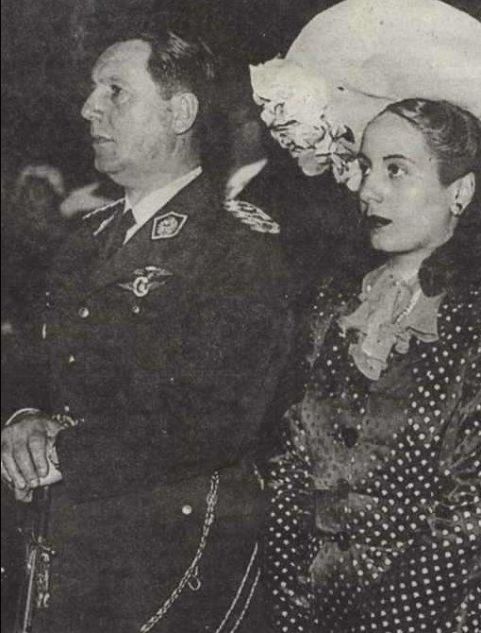The first truly transparent presidential election since 1928 was won by Colonel Juan Domingo Perón, a populist, Mussolini admirer, and critic of the Nuremberg trials.
Perón was a career Argentine officer. In 1943, he participated in a military coup and was made Minister of Labour by the junta. His populist policies won him the support of the “descamisados”, or the “shirtless”, the poorest sections of the working class. He soon took up the posts of Minister of War and Vice President with the rank of Lieutenant-General. The junta feared his popularity, and in October 1945, he was arrested but was released as a result of civil unrest.
Perón is reported to have said: “The Nuremberg Trials that occur in Germany today are a farce, unworthy of the victors who behave in the most disgusting manner”. According to some reports, Peron received large sums of money through the German Embassy from 1943 to 1945. It was in Argentina where Adolf Eichmann, Josef Mengele, and thousands of other Nazis found refuge.
The name of the Argentine president gave birth to the term “Peronism”. In the economy, he nationalised railways and electrical communications, centralised agriculture, and stopped access of foreign capital to the country. His wife (and Vice President of the country), actress Eva Duarte de Perón, was very popular among Argentines. However, over time, the regime inundated by corruption led to impoverishment, weakened the national currency, and destroyed investments. Peron did not tolerate any dissent, made enemies on both the right and the left, and turned the church against him. In 1955, a military coup took place in Argentina that brought to power one of the most brutal dictatorships in history. Perón had to flee the country.
He tried to lead the Peronist movement from abroad, but he only managed to return to power in 1973 when he won the presidential elections again. A year later, Perón died of a heart attack.
Sources:
The newspaper “Izvestia”, No. 49 from 26 February 1946
Juan Perón Wins Argentina's Presidential Election

© Public Domain























